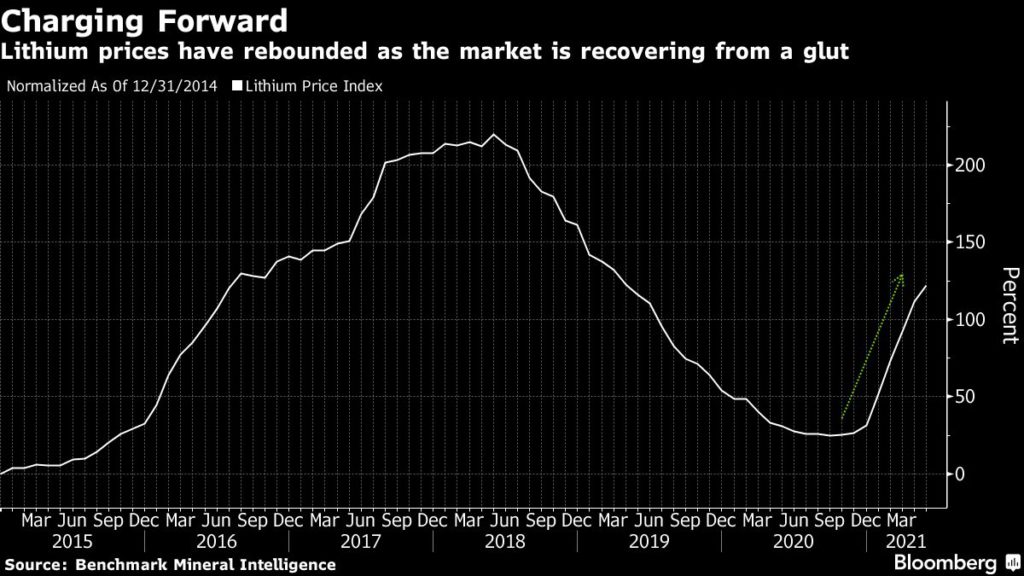Albemarle to boost extraction in search for green growth

The world’s biggest lithium producer is proceeding with a project to extract more of the battery metal from the brine it pumps up from a Chilean salt flat in a sign of its confidence in the country and global demand.
Albemarle Corp. is introducing a way of extracting more of the lithium that’s normally captured in salts, thereby lifting yields to 80-85% from 50-55%, Chief Executive Officer Kent Masters said in an interview.
The U.S. firm and its biggest rival SQM are expanding in Chile’s giant Salar de Atacama to help meet an expected tripling of demand in an electric-vehicle revolution. At the same time, they’re attempting to limit how much brine they pump and fresh water they use amid growing environmental scrutiny by customers, communities and regulators in a global clean-energy push. The salt flat is in one of the driest places on Earth, where copper mines, communities and tourism also compete for water.
With a budget of less than $200 million, the yield improvement project will take about 18 months to implement and another six months to start hitting sales.
“We’re always looking for ways to maximize our efficiencies at the Salar and at the conversion plants,” Masters said. “This one is actionable, it’s in process, we’re building it today.”
The Charlotte, North Carolina-based company is proceeding with investments in Chile at a time when opposition politicians in the country call for a greater contribution from mining to fund social spending as well as an overhaul of water management and indigenous rights. Ahead of presidential elections in November, Chileans just chose an assembly to write a new constitution that’s comprised mainly of independents and left-wingers.

“The Salar yield is a decision we made now that tells you the confidence we have in Chile as a country,” Masters said. “We’ll know the direction and where things are going before we have to make another big investment decision in Chile.”
Albemarle doesn’t see a big risk for the lithium industry from proposed tax changes in Chile, and is always looking for ways to improve its sustainability “with or without pressure from the government,” he said.
Its Chilean investments are also supported by Albemarle’s upbeat outlook for lithium demand in both the short and long terms, with a recent industry oversupply episode unlikely to be repeated. The company’s looking for additional resources to satisfy demand beyond this decade.
“We feel good, we’re investing to keep up with that growth,” said Masters.
(By James Attwood and Yvonne Yue Li)
More News
{{ commodity.name }}
{{ post.title }}
{{ post.date }}




Comments